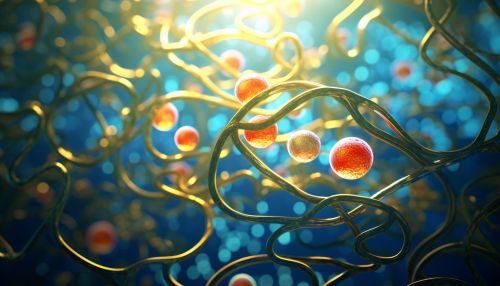Mitochondrial disease
Overview
Mitochondrial diseases are a group of disorders caused by dysfunctional mitochondria, the tiny organelles that are considered the powerhouses of the cell. These diseases are often inherited and can occur in both children and adults. Mitochondrial diseases can affect any organ system in the body and can present with a wide variety of symptoms, making them difficult to diagnose.


Causes
Mitochondrial diseases are usually caused by mutations in mitochondrial DNA or in nuclear genes that code for mitochondrial components. These mutations lead to impaired energy production, as mitochondria are responsible for creating more than 90% of the energy needed by the body to sustain life and support growth. When mitochondria fail, less energy is generated within the cell, potentially affecting cell function and viability.
Symptoms
Symptoms of mitochondrial disease can vary greatly, reflecting the diversity of the body's tissues and systems that rely on mitochondrial energy production. Symptoms can include fatigue, muscle weakness, pain, poor growth, loss of motor control, gastrointestinal disorders, respiratory problems, cardiac disease, liver disease, diabetes, and increased susceptibility to infection.
Diagnosis
Diagnosis of mitochondrial disease can be challenging due to the wide range of symptoms and the fact that symptoms can occur at any age and affect any organ. Diagnosis typically involves a combination of clinical examination, laboratory testing, and genetic testing. Muscle biopsy may also be performed to assess mitochondrial function.
Treatment
There is currently no cure for mitochondrial disease. Treatment is typically supportive, aimed at reducing symptoms and improving quality of life. This can include physical therapy, respiratory therapy, and various medications to manage symptoms. In some cases, dietary modifications and vitamins may also be recommended.
Prognosis
The prognosis for mitochondrial disease varies greatly depending on the specific type of disease and the organs affected. Some individuals may lead relatively normal lives, while others may experience significant disability. In severe cases, mitochondrial disease can be life-threatening.
Research
Research into mitochondrial disease is ongoing, with scientists working to better understand the causes of these diseases and to develop new treatments. This research is crucial for improving the lives of individuals with mitochondrial disease and their families.
